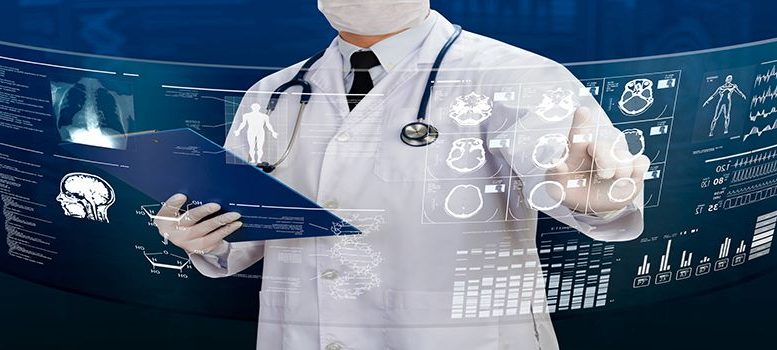Any mention of artificial intelligence (AI) brings to mind how machines could – or already do – perform tasks typically associated with the human mind. What however is more interesting is not its generic advantage but its specific uses in different industries.
How useful is AI in healthcare?
In healthcare, for instance, AI experts could leverage the power of machine learning (ML) to support hospital staff and physicians by providing clinical decision support (CDS) – i.e. assistance with clinical decision-making tasks – driven by data. ML uses algorithms to identify patterns in data and give accurate, timely, and automated insights to healthcare providers.
How has spending on (AI) Artificial Intelligence in healthcare grown?
The work of AI engineers is driving the prevalence of technology in healthcare. According to Business Insider Intelligence, from 2017-2023, spending on AI in healthcare will grow at a CAGR of 43%. This brings wider advantages from AI sifting through huge sets of data to conduct predictive analysis and extract insights on patients.
What advantages does AI bring to healthcare?
AI facilitates the delivery of healthcare services at a lower cost and a higher speed than otherwise possible. This is possible due to AI experts analyzing big data sets from patients and automating certain tasks. The following are the positives of using AI in healthcare:
- Analysis of big data sets: AI can sift through huge sets of data on patients, and conduct predictive analysis on them to get useful insights. Getting these insights faster helps to understand how the healthcare system is working and which of the areas of patient care (if any) need improvement.
- Wearable technology: It is not always possible for a doctor to access patient records on demand or for a patient to visit a doctor or give updates immediately or as and when needed. Wearable technology is an excellent example of how AI can serve the needs of patients very well. Fitness bands, smart watches, heart rate monitors, and other forms of healthcare wearable can generate, access, and transmit patient data to their healthcare providers. The devices can keep the users and healthcare providers alerted on possible health issues and risks. They can also facilitate a degree of self-assessment for simpler issues, which reduces the load on healthcare professionals and the need for visiting a doctor or a hospital.
- More economical tasks: Administrative tasks are estimated to take up 30% of total costs of healthcare. AI engineers can help to reduce the load on healthcare professionals and make their work more cost-effective by designing algorithms that automate tasks such as insurance pre-authorization, following up with customers on bills not paid, and healthcare record maintenance.
Are there any risks from increasing the presence of AI in healthcare?
AI experts are continually working on systems that take on routine tasks and management in healthcare. There are challenges from this increased role of AI, including the risk from erroneous data analysis and the privacy of patient data. Check below:
- Erroneous recommendations: Patients could suffer injuries or other trouble if the system recommends the wrong drug, wrongly analyzes a report, or improperly allocates limited resources. And as AI presence becomes more widespread, the potential for such errors could become high.
- Data quality: Data is often fragmented across different providers, or is in different formats. There may be other gaps, or data may be of improper quality for reliable analysis. This increases the chance of errors and makes data collection and analysis more expensive.
- Privacy: Large amounts of health-related data are collected from numerous patients. This creates a risk to privacy of patients, especially for sensitive information.
- Bias: This comes from the fact that AI (Artificial Intelligence) effectiveness depends on the training data used. The system will reflect the underlying data. So if it comes from a particular category of people or of healthcare providers, the results could be inaccurate.
Decreased human knowledge: For some tasks that are automated, over time, there could be too few humans working in those fields to be able to monitor AI systems for potential errors in those areas e.g. radiology. Knowledge development could take a hit.

Be the first to comment on "How Artificial Intelligence is a Boon for Healthcare"